![]()
Are you worried about the safety of silicone utensils? Concerns about kitchenware materials are common among health-conscious cooks. Let’s explore whether silicone utensils are a safe choice for your kitchen.
Yes, silicone utensils are generally safe for cooking. They are made from food-grade silicone, which is heat-resistant, non-toxic, and free of harmful chemicals like BPA.
But are there any downsides or potential risks? Let's dive deeper into the topic to understand all aspects of silicone utensils.
What are the disadvantages of silicone utensils?
Silicone utensils are popular, but no material is perfect. Let’s see where they fall short.
The main disadvantages of silicone utensils include their inability to handle extreme heat and the possibility of low-quality silicone containing fillers.
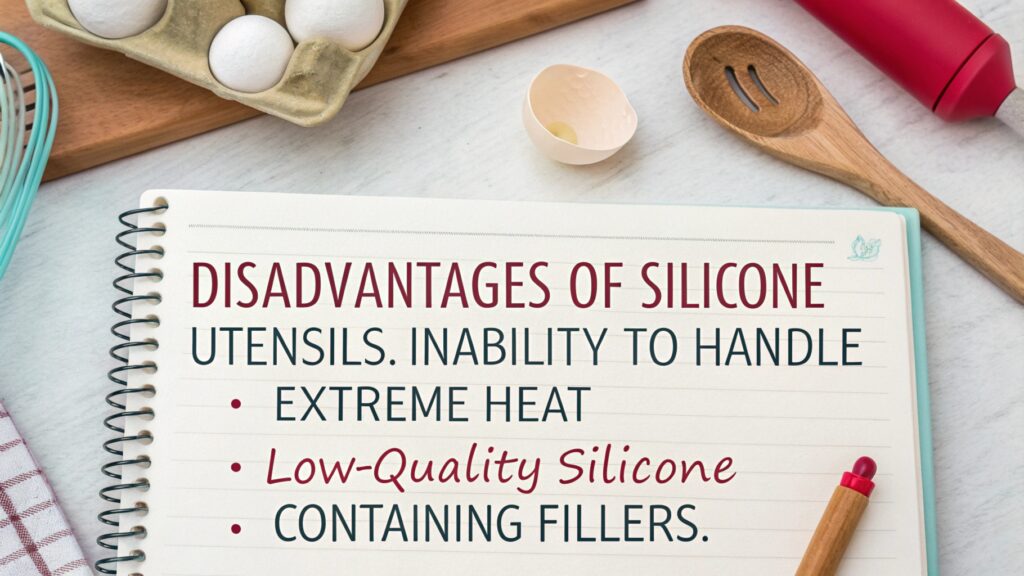
Dive deeper: Common disadvantages of silicone utensils
- Heat resistance limits: While silicone can typically withstand temperatures up to 428°F (220°C), prolonged exposure to higher temperatures might cause degradation.
- Potential fillers: Non-food-grade silicone might contain chemical fillers, reducing its safety.
- Not suitable for sharp edges: Silicone can tear or wear out if used on sharp surfaces or with heavy-duty tasks.
Are silicone utensils safe for health?
Health concerns are valid when selecting kitchen utensils. Are silicone utensils a risk?
Food-grade silicone utensils are safe for health as they do not leach harmful chemicals, even when exposed to high heat.
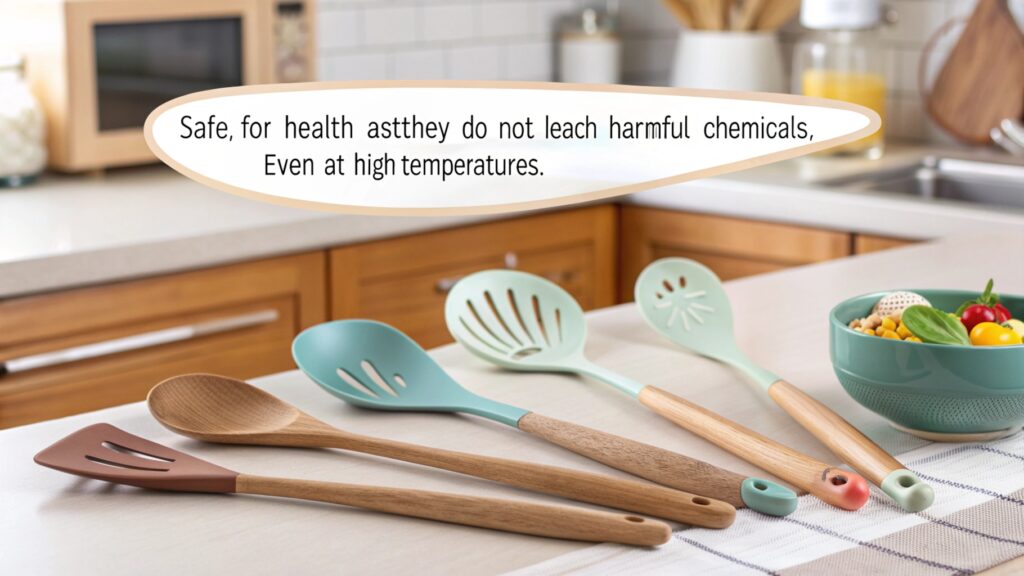
Dive deeper: Addressing health-related concerns
- Certifications: Always look for FDA or LFGB certification, ensuring the material meets safety standards.
- Non-reactive: Unlike metal, silicone does not react with acidic foods.
- Long-term safety: Studies show no significant health risks associated with food-grade silicone.
What are the safest utensils to cook with?
Safety in cookware materials varies. Let’s identify the safest options for your kitchen.
Silicone, stainless steel, wood, and ceramic utensils are among the safest for cooking.
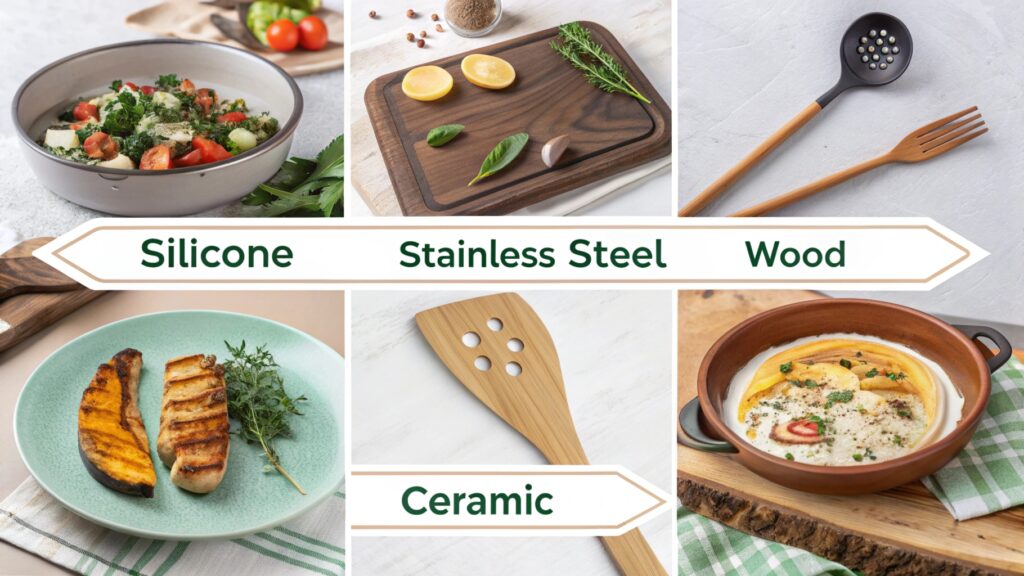
Dive deeper: Comparing utensil materials
| Material | Safety Features | Limitations |
|---|---|---|
| Silicone | Non-toxic, heat-resistant | Can degrade at very high temps |
| Stainless Steel | Durable, non-reactive | Conducts heat, may scratch pans |
| Wood | Natural, biodegradable | Hard to clean, absorbs moisture |
| Ceramic | Non-reactive, aesthetic | Fragile, prone to chipping |
Is it better to cook with silicone or metal utensils?
Silicone and metal utensils each have their pros and cons. Which should you choose?
Silicone is better for non-stick cookware, while metal is ideal for durability and high-heat cooking.
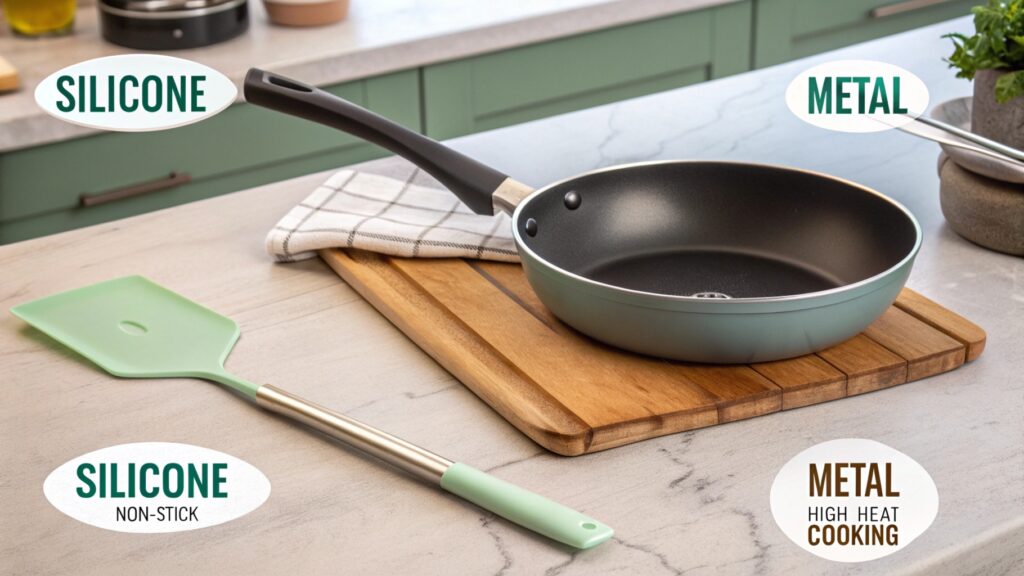
Dive deeper: Choosing between silicone and metal utensils
- Non-stick cookware: Silicone protects the coating from scratches.
- High-heat cooking: Metal withstands extreme temperatures without degradation.
- Noise levels: Silicone is quieter compared to metal clanging against cookware.
Can silicone cause health issues?
Some question if silicone has hidden health risks. Let’s explore.
Food-grade silicone does not cause health issues as it is chemically stable and free from harmful chemicals.
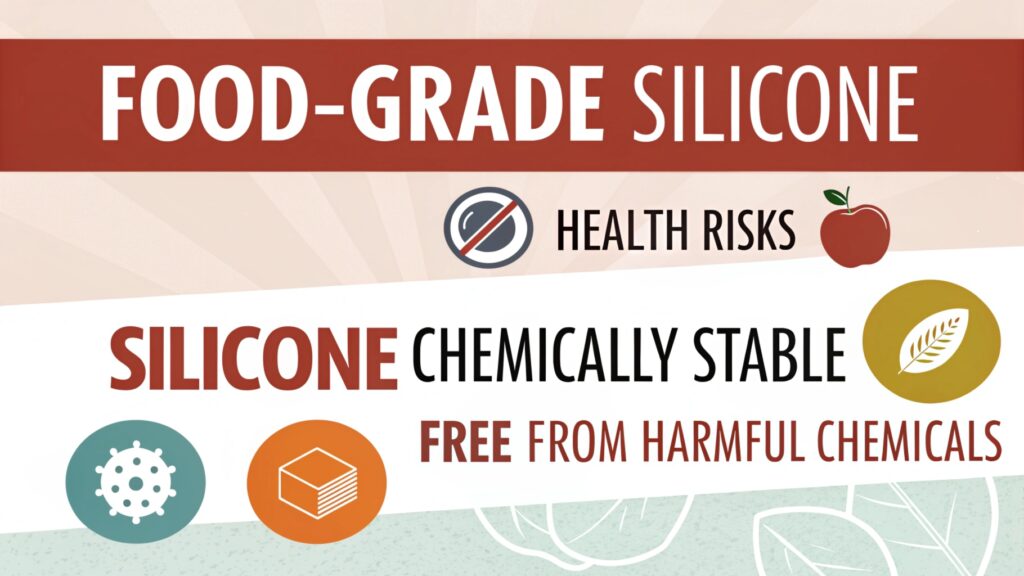
Dive deeper: Investigating health concerns
- Chemical stability: Silicone resists breaking down into harmful components.
- Safety certifications: Products with FDA or LFGB approvals are tested for safety.
- Avoiding low-quality silicone: Stick to reputable brands to avoid fillers or impurities.
Conclusion
Silicone utensils are a safe, versatile, and practical choice for your kitchen, especially when used correctly and selected from trusted brands.
